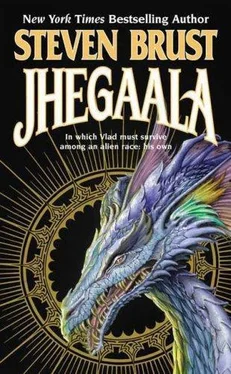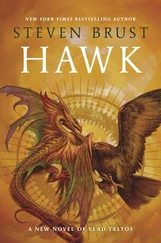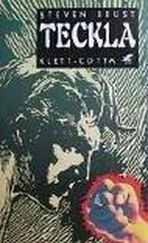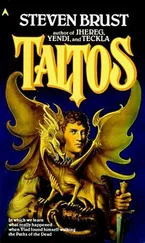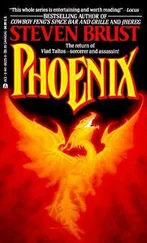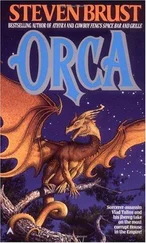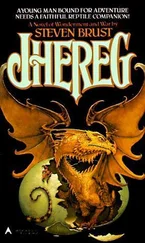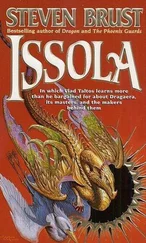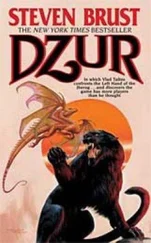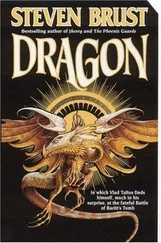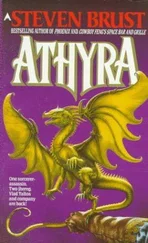Steven Brust - Jhegaala
Здесь есть возможность читать онлайн «Steven Brust - Jhegaala» весь текст электронной книги совершенно бесплатно (целиком полную версию без сокращений). В некоторых случаях можно слушать аудио, скачать через торрент в формате fb2 и присутствует краткое содержание. Жанр: Книги. Описание произведения, (предисловие) а так же отзывы посетителей доступны на портале библиотеки ЛибКат.
- Название:Jhegaala
- Автор:
- Жанр:
- Год:неизвестен
- ISBN:нет данных
- Рейтинг книги:5 / 5. Голосов: 1
-
Избранное:Добавить в избранное
- Отзывы:
-
Ваша оценка:
- 100
- 1
- 2
- 3
- 4
- 5
Jhegaala: краткое содержание, описание и аннотация
Предлагаем к чтению аннотацию, описание, краткое содержание или предисловие (зависит от того, что написал сам автор книги «Jhegaala»). Если вы не нашли необходимую информацию о книге — напишите в комментариях, мы постараемся отыскать её.
Jhegaala — читать онлайн бесплатно полную книгу (весь текст) целиком
Ниже представлен текст книги, разбитый по страницам. Система сохранения места последней прочитанной страницы, позволяет с удобством читать онлайн бесплатно книгу «Jhegaala», без необходимости каждый раз заново искать на чём Вы остановились. Поставьте закладку, и сможете в любой момент перейти на страницу, на которой закончили чтение.
Интервал:
Закладка:
 Part One
Part One
Part Two
Chapter 1
Chapter 2
Chapter 3
Chapter 4
Part Three
Chapter 5
Chapter 6
Chapter 7
Chapter 8
Chapter 9
Chapter 10
Part Four
Chapter 11
Chapter 12
Part Five
Chapter 13
Chapter 14
Chapter 15
Chapter 16
Interlude
Chapter 17
Epilogue
jhegaala
steven brust
Part Oneegg
Incubation time is short—eight or nine days—during which the egg is vulnerable. While the mother is able to protect the eggs after completing her metamorphosis (see Chapter 19), that still leaves between thirty-five and forty hours during which the eggs would be entirely without protection, were it not for the help of a male who has undergone his own metamorphosis after fertilizing the eggs (see Chapter 18) and now returns, as it were, to stand guard while the mother is helpless, as will be covered in more detail during the discussion of the levidopt.
It must be stressed that it is not, in particular, the father who returns to guard the eggs, but rather the first unattached male levidopt to pass within fifty feet or so of the transforming mother. Exactly how the male levidopt finds the eggs…
—Oscaani: Fauna of the Middle South: A Brief Survey, Volume 6, Chapter 15 
prologue
Lefitt: But, my dear, what does it do ? Boraan: Why, nothing, of course. It just lies there. That's the beauty of it .
— Miersen, Six Parts Water Day One, Act II, Scene 4
There is a place in the mountain called Saestara where, according to the locals, you can look east and see the past, and look west and see the future. I suppose it has its origins in some migration in pre-history, or some invasion, or some mystical rubbish built of thin air—plenty of that in the mountains, at any rate. I don't know, but the locals seem to believe it.
And, if it's true, I was going backward. Looking west, I remembered lots of painful scrabbling up paths that were made by and for mountain goats; looking east, I foresaw more of the same going down.
Some distance behind me was a lake called Szurke, on the edge of a forest. I owned the lake and a little bit of the forest and the big manor house near it, courtesy of the Empire and thanks to "extraordinary service." That's a laugh. I didn't dare stay there, courtesy of the House of the Jhereg and thanks to "extraordinary misdeeds." That's not such a laugh.
I'd installed my grandfather as regent. As I told him, "I prefer nepotism to despotism." He hadn't been amused; he didn't much like the idea of being a despot himself, having pretty much always hated the aristocracy with a sort of mild dispassionate hate that had its origins in a past of which I'd never gotten more than hints.
He and I had both been worried during my visit. He was worried because the poaching in his part of the forest had gotten out of hand when the poachers realized he didn't have the heart to enforce the laws against it. I was worried that the Jhereg might be mad enough at me to take it out on him. I didn't think they would—what I'd done hadn't been as bad as, say, giving evidence to the Empire—but it caused me some concern.
We talked about that, and Noish-pa wasn't worried. The Jhereg is capable, perhaps, of making use of a human witch, no matter how much they scorn the magic of "Easterners," but they'd be hard pressed to find one as skilled as my grandfather. And give him a little time with all the animals, and even the trees and plants in this area, and he would create a security network and defensive perimeter I'd defy Mario to break through.
We had a long talk about the trouble I was in, and his troubles with poachers (which translated to hating having to tell anyone what to do), and where I was going to go from here. He didn't want to know, because he figured that what he didn't know the Jhereg couldn't force him to tell. I was going to explain that the Jhereg didn't do things like that, but, well, sometimes they do.
I played with Ambrus, his familiar, and Noish-pa and Loiosh, my familiar, got reacquainted. I stayed for a week and he cooked for me and we talked about many things, especially how he could continue as regent without actually running anything. We came up with some ideas to at least cut down on the orders he would have to give, and he seemed happy.
One night, over Fenarian brandy, I said, "Noish-pa, is there anything you can tell me about my mother?"
He sighed. "She studied the Art, Vladimir, and that made my son, may he find peace, unhappy. And so I saw her little."
"Eh, why?"
"You know how your father felt about the Art, Vladimir. He didn't want the two of us speaking of it. I hardly saw my son after his marriage, save when he brought you over after your mother passed on. I wish I could tell you what she was like, Vladimir. I remember she had a kind face and a soft voice, yes?"
I nodded; that much was more than I'd had before.
He said, "You know that, like me, she was not long in this land of elfs. I came from Fenario when—when I had to leave. But her father came, either before she was born, or when she was only in arms."
"Why did he leave?"
"She never said."
I nodded. "What was her name? I mean, before she was married?"
"I don't know," he said. "No—" He frowned. "Yes, I may know at that. A moment, Vladimir, while I search."
He left the room—a cozy little alcove that Noish-pa had turned into his library—and was gone for about half an hour. When he returned, he was holding a piece of parchment-cloth. He said, "I had this note of her. I have often puzzled over it."
I took it. It smelled the way cloth gets to smell when it's been in a drawer for years and years; it had yellowed a little. I studied it and frowned. "You can't read it either?"
"Oh, I can read it, Vladimir. It is a runic writing that is very, very old in Fenario. Some say it goes back to before the Fenarians settled there. It is still sometimes found in old tomes of the Art, which is why I learned it. I should have taught you."
"Well, if you can read it, what's the puzzle?"
He smiled the smile I knew so well: eyes twinkling with secrets that were fun, rather than secrets that could cut. He took it back; he had to hold it just a little farther away from his eyes than he had a few years before. He cleared his throat and read: "Father, the food was good and the evening delightful. Please accept my thanks on behalf of myself and Pishta. We both very much look forward to seeing you again. With love, Marishka Merss Taltos."
"Merss" I said.
He nodded.
Then I frowned. "Wait. What is puzzling about it?"
"Eh, Vladimir? You tell me." His eyes were twinkling again.
"Umm," I said. "Well, is it what it seems? I mean, did it come after a meal?"
He nodded.
"Then what—oh." It took me a moment, but I got it; first one piece, then the other. "In the first place, why did she use her full name when writing a thank-you note? In the second, why write a thank-you note in an ancient runic script?"
He nodded. "I still wonder."
I said, "Do you remember the dinner?"
"Oh, yes. Not often did your father visit me at that time."
"Noish-pa?"
"Hmm?"
"Was my mother pregnant when she wrote that?"
He frowned and his eyes narrowed and shifted up and to the right as his memory worked. After a moment he nodded.
I smiled. "It was meant for me, Noish-pa. To answer my questions, in case I lived and she died. She knew my father—"
Читать дальшеИнтервал:
Закладка:
Похожие книги на «Jhegaala»
Представляем Вашему вниманию похожие книги на «Jhegaala» списком для выбора. Мы отобрали схожую по названию и смыслу литературу в надежде предоставить читателям больше вариантов отыскать новые, интересные, ещё непрочитанные произведения.
Обсуждение, отзывы о книге «Jhegaala» и просто собственные мнения читателей. Оставьте ваши комментарии, напишите, что Вы думаете о произведении, его смысле или главных героях. Укажите что конкретно понравилось, а что нет, и почему Вы так считаете.
